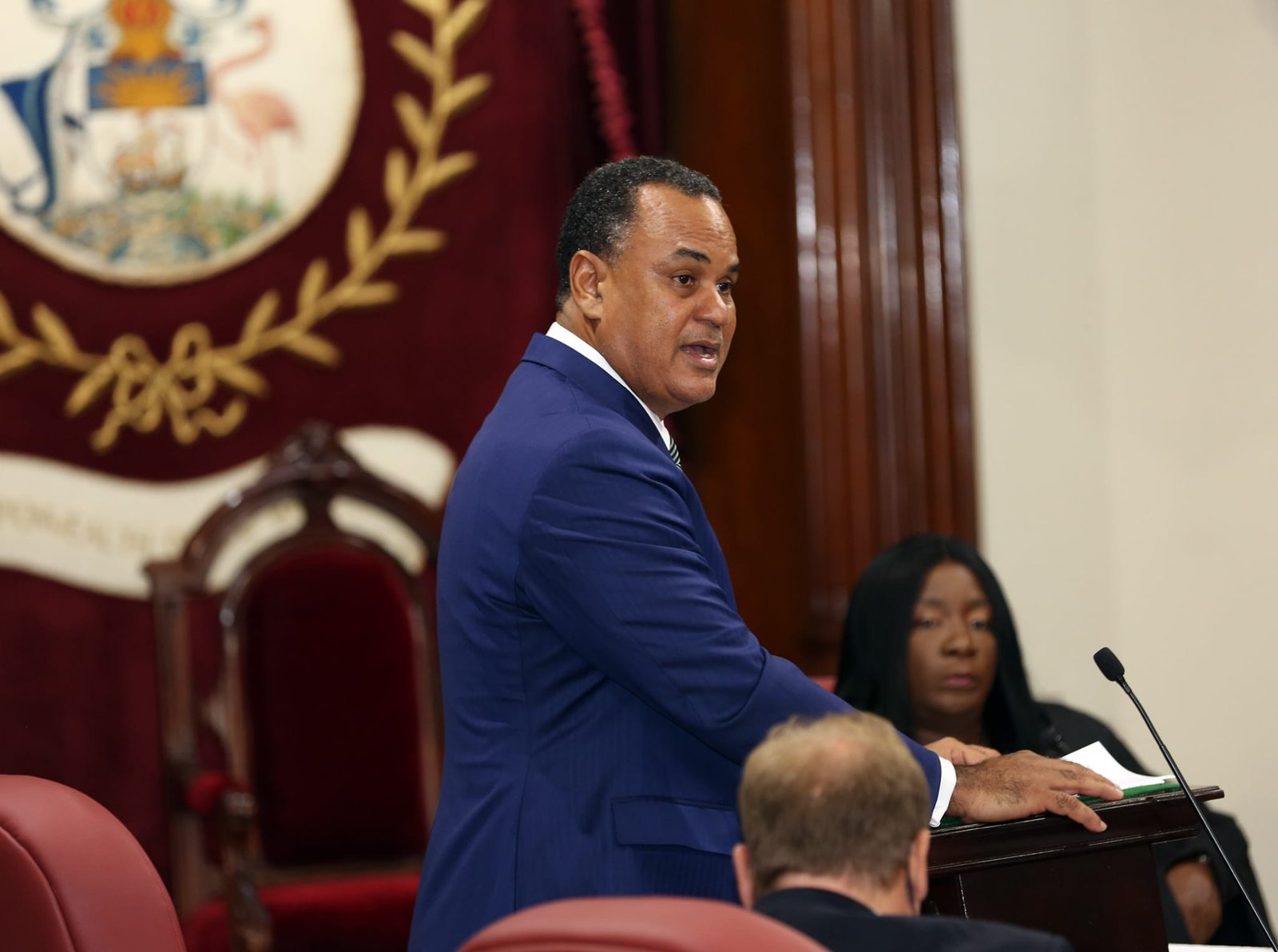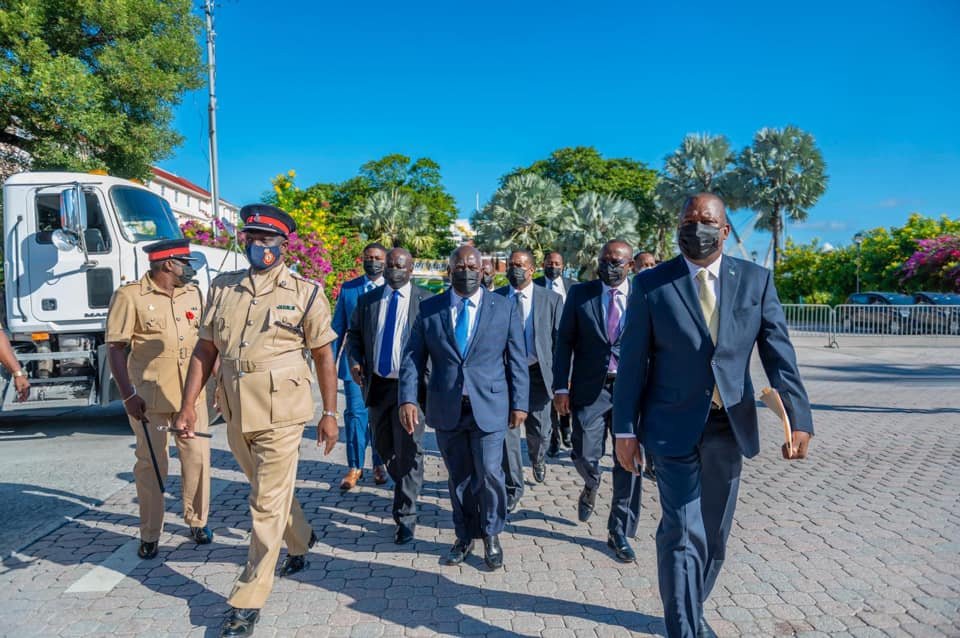Economic affairs minister says govt already taking steps to address S&P’s concerns
Credit ratings agency does “not anticipate meaningful new revenue” in short-term for The Bahamas
NASSAU, BAHAMAS — The Davis administration understands the need to urgently address this nation’s level of indebtedness, according to Economic Affairs Minister Michael Halkitis.
He noted that the government is already taking steps to address concerns outlined in Standard & Poor’s latest report.
S&P Global Ratings on Friday downgraded The Bahamas’ sovereign credit rating from BB- to B+ with a stable outlook. S&P said that the stable outlook reflects its view that “the economic recovery presently underway will support government revenues and reduce pressure on government expenditures, supporting a gradual decline in fiscal deficits over the next 12 months”.
The ratings agency said it expects continued, but decelerating, growth in the national debt.

Economic Affairs Minister Michael Halkitis said in a statement on S&P’s rating: “The rating reflects the continued economic and fiscal impact of Hurricane Dorian and COVID-19, as well as the failure of the previous administration to implement meaningful fiscal reforms to existing revenue models and ill-conceived debt management strategies.
“The imprudent policy choices related to borrowing over the past four years have increased our external indebtedness despite the existing domestic capacity.”
He added: “The Davis administration understands the urgency of this matter and the need for immediate action to reverse the trend of consecutive downgrades in recent years.
“This is why a supplementary budget was necessary — to ensure alignment with our priorities and to proactively address the social, economic and fiscal challenges facing our nation.
“We are already taking steps to address the concerns expressed in S&P’s report, beginning with our balanced approach to stimulating the economy and providing needed relief to the Bahamian people.
“We are doing this without further contributing to an increase in the projected national debt in the supplementary budget. Economic recovery and growth are our first priorities in addressing this issue.”
According to Halkitis, the government remains committed to strengthening the Fiscal Responsibility Act and public financial management legislation, as well as enhancing revenue administration and reimagining revenue policy.
“We have retooled the Revenue Enhancement Unit and are launching the expert-driven Revenue Policy Committee to propel these efforts,” said Halkitis.

“Our goal is to have a 25 percent revenue-to-GDP ratio by 2025. We are also in the process of implementing debt reduction strategies and facilitating more effective debt management guided by the Public Debt Advisory Committee.”
S&P said that in a downside scenario it could lower the ratings over the next 12 months “if the government’s inability to close budget deficits leads to fiscal deficits remaining elevated for a prolonged period, or if it weakens the sovereign’s ability to obtain funding”.
“Furthermore, we could also lower the ratings should the economic recovery lag our expectations,” it noted.
In an upside scenario, S&P said that it could improve the ratings over the next 12 months “if the government establishes a track record of enacting meaningful financial reform, demonstrating an ability to raise revenues and leading to sustained near-balanced financial results and improved economic prospects”.
Failure to implement timely reforms has limited the country’s financial flexibility to address future shocks.
– Standard & Poor’s
The ratings agency noted that The Bahamas entered the pandemic with little financial flexibility owing to its “sustained budgetary imbalances, high debt burden and vulnerability to external shocks”.
“Although successive administrations have identified the need to reform public finances and ensure debt sustainability as a top priority, the failure to implement timely reforms has limited the country’s financial flexibility to address future shocks,” S&P noted.
“The debt burden has climbed almost $2.4 billion in the past two fiscal years, and interest costs now represent about 21 percent of budgetary expenses.
“Furthermore, The Bahamas is exposed to financing risks as it seeks to fund large deficits and refinance existing debt.”
S&P said the country’s track record of slow progress in reforming public finances and key sectors of the economy has contributed to the weakening of its financial profile over many years and hurt its economic performance.
The ratings agency also said it expects that the fiscal deficit for the fiscal year ending June 30, 2022, will be 8.7 percent of GDP, down from 15.4 percent in the previous year.
“We also expect that the change in general government net debt will average 4.2 percent of GDP during 2021-2024. In the short term, we do not anticipate meaningful new revenue,” it noted.






